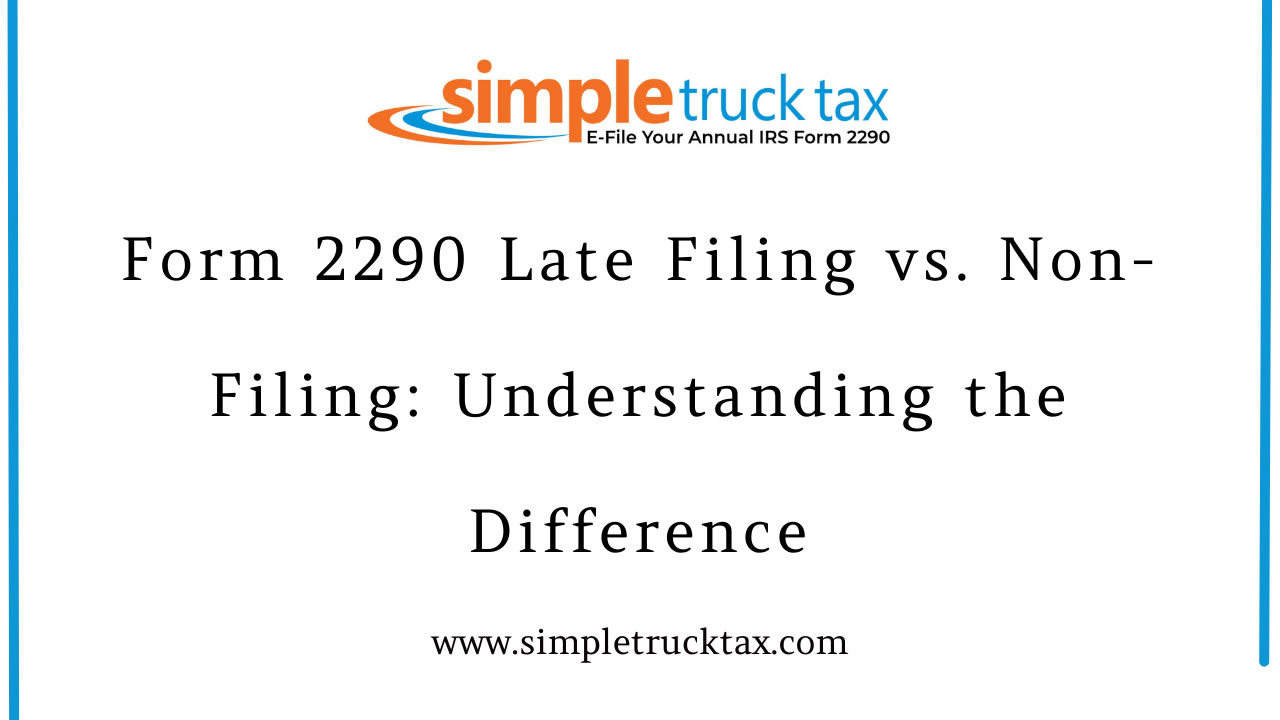
Form 2290 Late Filing vs. Non-Filing: Understanding the Difference
Missing the deadline for filing Form 2290, which pertains to the tax on heavy vehicles used, creates worries to every truck owner and operator. Similar to this, late and non-filing can cause problems with IRS.The IRS treats each case differently, and the knowledge of difference is considered to be the very first step toward fixing your tax problem.
What Really Late Filing of Form 2290 Might Mean?
Filing late means that you finished your Form 2290 tax return after the 31st of August, even just by a single day. This is very normal, as most of the time, the business owner just forgets it among many other things or simply becomes too busy to get it filed on time. This is a "failure to file"-penalty and interest on unpaid taxes.
It usually imposes on the late filers a flat-rate fine-percentage of the amount you owe for every month or part of a month the truck tax remains overdue, plus interest. Though no one really wishes to pay the additional charges, good news is that by filing ultimately, you are implying to the IRS that you are trying your best to comply and it can pave way for an easier process of getting you back on track. Using an e-file service can help you accomplish this in no time while minimizing the penalty time.
What the Form 2290 Non-Filing Is?
Non-filing becomes a graver problem. This is because you did not submit your Form 2290 at all. This is what IRS considered complete lapse of legal obligation. This can hardly be considered a mere omission because it could mean the intent to avoid tax payment.
This means that the consequences of non-filing are far heavier. You cannot register your heavy vehicle in the DMV of your own state without a valid stamped Schedule 1. This might lead to suspension of your vehicle's registration, and actually grounding your truck. Other punishment the IRS can impose include adding fines, auditing, or initiating a collection action in which the government may seize assets in order to satisfy the debt. Unlike their counterparts who filed late, non-filers experience a different and tougher enforcement action since they have not provided any evidence of payment.
Bottom Line: Action Must be Taken, and E-file It All
Non-filing is the main battlefield that must be avoided by any means. Late filing charges a penalty, but that one can fix. This can save your vehicle from being suspended by completing your HVUT filing so that you can have a valid stamped Schedule 1. If you're late, why wait? Use an e-file service and file your overdue tax filing to get your business back on track.